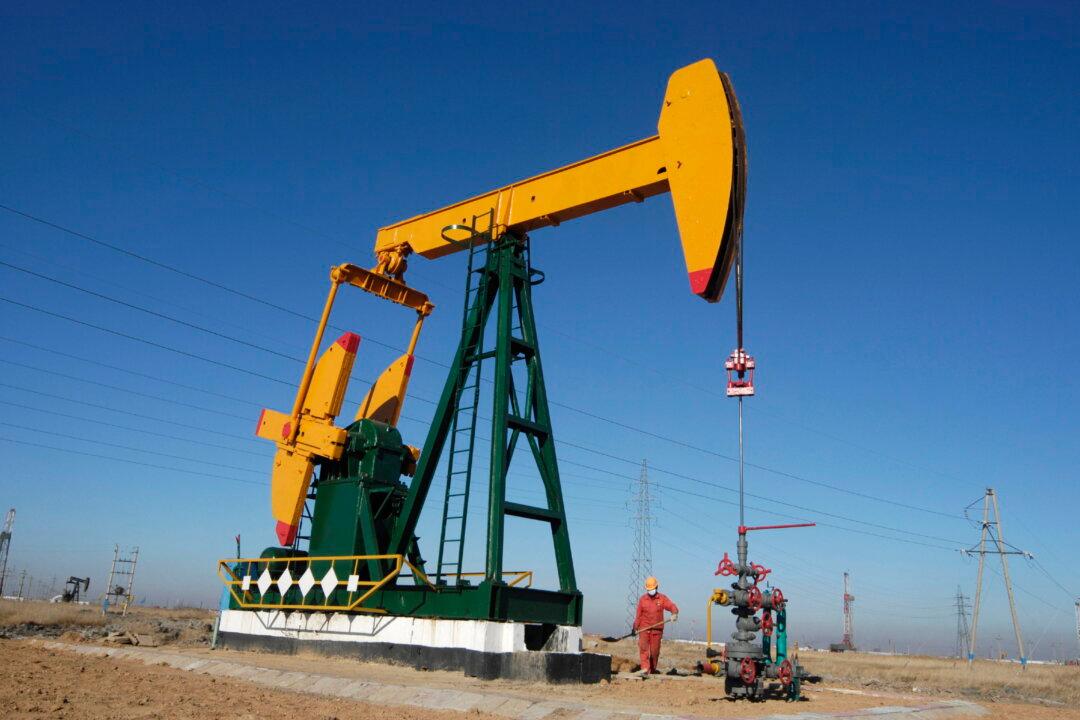LONDON—Oil prices fell on Monday, dragged down by a firmer U.S. dollar while surging coronavirus cases in China dashed hopes of a swift reopening of the economy for the world’s biggest crude importer.
Brent crude futures were down $1.01, or 1.1 percent, at $94.98 a barrel by 1030 GMT after gaining 1.1 percent on Friday. WTI crude futures fell $1.11, or 1.3 percent, to $87.85 after advancing 2.9 percent on Friday.





